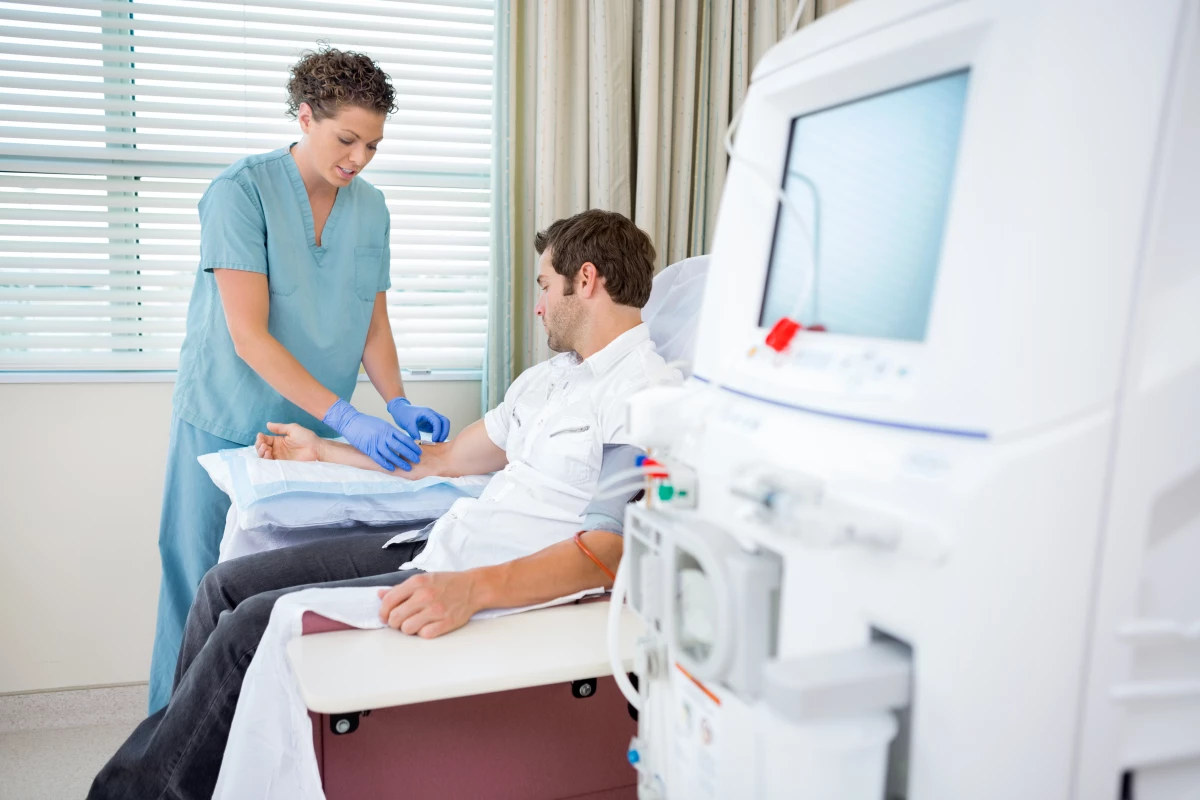Nearly 560,000 Americans regularly undergo dialysis each year, and while treatment can vastly improve quality of life, it can also contribute to worsening it. Patients receiving crucial, life-saving kidney treatment often become less physically active, which can present or amplify comorbidities. In an aging population, this can result in increased frailty, risk of falls and hospitalization, among other conditions.
Researchers from the Technology University of Munich (TUM) have looked at how light exercise, tailored to each patient’s abilities, can result in a greater quality of life and less hospital visits while undergoing dialysis.
“The limitations imposed by these diseases, and the time required for dialysis, often mean that those affected engage in little physical exercise,” said Martin Halle, professor of Preventative and Rehabilitative Sports Medicine at TUM. "We wanted to change that.”
The team conducted a 12-month study that involved 1,000 patients across 21 dialysis centers. Half of the patients received exercise sessions between once and three times a week, alongside their dialysis. The light workouts tailored to individual abilities included activities such as 30 minutes of endurance training on a bed-cycle ergometer, and 30 minutes of exercises with weights, resistance bands and balls.
After the year, the patients that were receiving physical therapy performed much better in tests, able to walk further in six minutes and perform more sit-to-stand movements than the cohort that had medical monitoring alone.
“This type of standardized testing may admittedly not appear to be particularly reflective of everyday life,” said Halle. “However, the results demonstrate tangible improvements in quality of life and autonomy. For example, the participants were able to stand up from a chair at home without assistance, which was not always the case beforehand.”
What’s more, the patients receiving the training sessions averaged two hospital visits in the 12 months, compared to five for the more sedentary group.
“To my mind, the results speak for themselves,” said Halle. “We were able to improve the participants’ health and also reduce the costs to the healthcare system with relatively little outlay.”
"I hope our exercise program will become standard in statutory health insurance in Germany," added Halle. "The benefits will likely also apply to patients in other countries. However, the best approach for a broad implementation has to be found for each society. Our study shows how important it is to adopt a holistic view of health, especially when it comes to elderly and infirm patients. While high-tech medicine is important, it can only achieve its full potential in combination with other fields, such as preventative medicine."
The study participants will continue to be monitored in future to help researchers learn more about the effects of exercise over the long term, and the researchers hope this kind of program could be adopted for a more complete approach to dialysis treatment and care, with minimal costs and training, but potentially life-changing benefits.
“Our study shows how important it is to adopt a holistic view of health, especially when it comes to elderly and infirm patients,” Hulle said. “While high-tech medicine is important, it can only achieve its full potential in combination with other fields, such as preventive medicine.”
The study was published in the journal NEJM Evidence.
Source: Technical University of Munich





